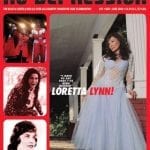God only knows…
Some days I feel like my shadow’s casting me. Some days the sun don’t shine.
— Warren Zevon, “Dirty Life And Times”
For two solid weeks, I couldn’t listen to Warren Zevon’s The Wind.
“Dirty Life And Times” or “Numb As A Statue” would start to play, but I’d push eject and shove in something else. His take on Dylan’s “Knockin’ On Heaven’s Door”? Never even gave it a shot.
I’d have felt disloyal doing otherwise.
Like I didn’t love my daughter enough.
That by listening to Zevon’s deathly songs I minimized the cancer that’s invaded her body, that’s stolen vitality from an 8-year-old whose happy feet rarely stay on the floor, whose head bobs as words rush forth, who personifies “Joy To The World” when she asks for that “Jeremiah Bullfrog” song again.
It was too much last fall, knowing Zevon’s life was ending and living our own world of weakness, to hear him weakly stumble over the word “will” in the simple line, “If she don’t love me then her sister will.”
Eventually, though, I found solace in Zevon’s wicked humor, in the noise, in the music’s visceral emotion and energy. I found myself listening to “Dirty Life”, “Disorder In The House” and “Numb” as I numbly drove to and from the hospital. The songs tested the minivan’s speakers, the bass-heavy mix unable to go as loud as I needed. But just as Bruce Springsteen’s guitar solos on “Disorder” could peel paint, they could also peel away pain. The songs came to seem appropriate, their in-the-gut messages stirring life while contemplating death.
All at a time we’re trying mightily not to do that, because we endure by hoping we never have to.
Now I taught the weeping willow how to cry cry cry. And I showed the clouds how to cover up a clear blue sky.
— Johnny Cash, “Big River”
At a time when anger seems pointless because, after all, just who the hell is there to be justifiably mad at, the attraction to songs of death, mayhem and anger is something I’ve thought about a lot.
Why do I want to hear “Banks Of The Ohio”, “Long Black Veil” or Johnny Cash sneering “I shot a man in Reno just to watch him die”? Why do I sing along with Mike Ireland on his songs of agony? How can I even think of “Our Baby’s Book”, Ernest Tubb’s warbling, even maudlin account of losing his baby boy?
Maybe it’s that music is even more necessary, because I’m uncomfortably numb at times, because it takes hard shots to the mind and body to bare healthy emotions when one is run-down from trying to be strong, because in some way it feels better knowing the singer is in pain, too.
It’s not just country songs of tragedy that call out. Sometimes songs blistering with anger, energy and volume punch from the past.
Black Flag shouts from my brain: “We are tired of your abuse. Try to stop us, it’s no use. Rise abovea” Joe Strummer’s mumbled yell of “London’s burning with boredom now” echoes around my skull. And, fittingly, the Ramones’ “I Wanna Be Sedated” pounds through. So maybe it’s even more basic, that any good music, be it sad or joyous or otherwise stuck in your ear or heart, can briefly transport you from where you are, be it a bad relationship, a traffic jam or, in this case, a situation defying all comprehension.
She’s giving me excitations, I’m pickin’ up good vibrationsaGotta keep those lovin’ good vibrations a-happenin’ with her.
— Beach Boys, “Good Vibrations”
In a Subaru where only the stereo is up-to-date are CDs for special situations. One by Welsh band McClusky for when the speakers need pummeling. A Chuck Berry collection for when the 4-year-old needs musical education. A collection called Pure 60s: The #1 Hits.
That last one has been a favorite on all-too-frequent trips to the doctor. It has 26 songs, but my girl’s favorite is the Tokens’ “The Lion Sleeps Tonight (Wimoweh)”, undoubtedly more legitimate from The Lion King than from dad.
We drive and dissect, trying to guess how many people are singing and what instrument makes that reedy sound. Other Pure 60s songs have been urged upon her, like “Do Wah Diddy Diddy” and “Wild Thing”, but it’s “Good Vibrations” that crept up her charts.
That’s a song I can live with, grafting its sunny lines of love and optimism onto our unhealthy situation. Because, as Zevon sings in “Dirty Life And Times”, we’re living in a “four-letter world.” Those four letters could spell many things, but around here, music has helped them spell “hope.”
Months later, hope, and medical experts, reside in San Francisco. And it’s hard not to have hope as we rocket across Arizona on our way there, because of how that headphone-clad girl’s off-key voice fills a van with spirit, even if it’s teen queen Hillary Duff’s spirit.
Me, I find resilience in the aching beauty of Carter and Ralph Stanley’s voices as they recount this mining tragedy or that broken heart. They show us the beauty among the ruins. For my wife, and sometimes the rest of us, the Ramones provide the soundtrack for San Francisco’s ups and downs. So the 4-year-old gets to hear the “pinhead song” four times as we cross town. And when we need something to keep us going, we shout: “Hey, ho, let’s go.”




